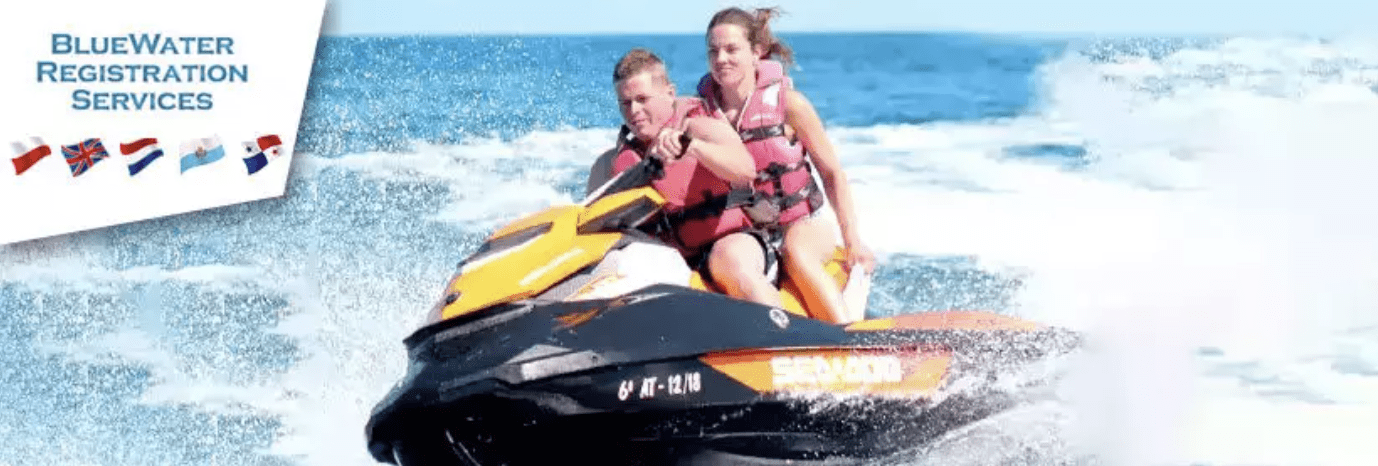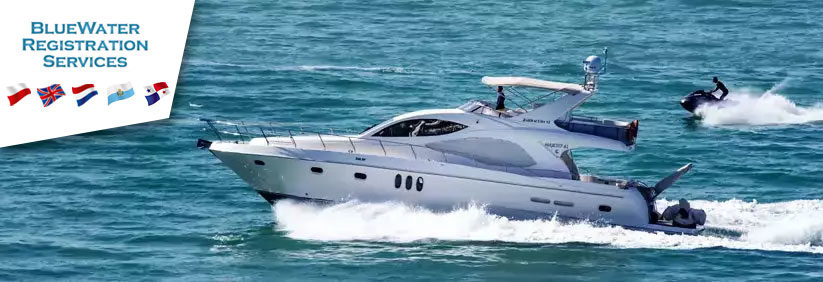
Dive into Fun Safely: Understanding Licensing Requirements for Jet Skiing. Jet Ski Rules, Regulations and Registration.
Understanding the jet Ski Rules and Regulations. Get ready to make a splash and enjoy some adrenaline-pumping fun on the water with jet skiing! But before you hit the waves, it’s important to familiarize yourself with the licensing requirements to ensure your safety and compliance. In this article, we’ll dive into all the essential information you need to know about obtaining a jet ski license and registration.
Operating a jet ski without the proper licensing can not only put you at risk but also lead to legal consequences if you do not meet the Jet Ski Rules, Regulations and Registration
So, whether you’re a beginner or a seasoned rider, understanding the rules and regulations is essential to avoid any potential mishaps.
From age restrictions to training courses, we’ll cover everything you need to know about the licensing process.
We’ll also delve into some common misconceptions and highlight the importance of insurance coverage for jet
ski enthusiasts.
So, grab your life jacket, rev up your engine, and join us on this informative journey to ensure you’re fully equipped with the knowledge and skills needed for a safe and enjoyable jet ski adventure!

What are licensing requirements for jet skiing?
Jet skiing is a thrilling water sport that requires a certain level of skill and responsibility. To ensure the safety of both the riders and others sharing the water, there are licensing requirements in place. These requirements vary depending on the jurisdiction you are in, but there are some commonalities that you should be aware of. Authorities look closely if you meet the Jet Ski Rules, Requirements and Regulations.
One of the most basic requirements is the need for a valid driver’s license. This is usually a prerequisite for obtaining a jet ski license. Additionally, some areas may have age restrictions, requiring riders to be at least 16 or 18 years old to operate a jet ski. It’s important to familiarize yourself with the specific regulations in your area to avoid any legal issues.
Another important aspect of licensing requirements is the need for proper insurance coverage. While it may not be a legal requirement in all areas, having insurance can protect you financially in the event of an accident or damage to your jet ski. It’s always better to be safe than sorry, so consider investing in comprehensive coverage.
Different types of jet ski licenses
When it comes to jet ski licenses, there are typically two main types: the temporary license and the permanent license. The temporary license is often referred to as a “boater’s education card” or a “PWC (Personal Watercraft) license.” This type of license is obtained by completing a boater education course, which covers the basics of jet ski operation, safety guidelines, and navigation rules.
The permanent license, on the other hand, is obtained through a more comprehensive process. In addition to completing a boater education course, you may be required to pass a written exam and a practical skills test.
This type of license allows you to operate a jet ski without any restrictions, as long as you adhere to the safety guidelines and regulations set by your local authorities.
It’s important to note that the requirements for obtaining a jet ski license can vary from state to state and even from country to country. Therefore, it’s crucial to check with your local maritime authority or licensing agency to get accurate and up-to-date information.

A man quickly rushes on a jet ski on the waves On Sunset. Entertainment for the rest of the sea. Water transport, extreme sports
Age requirements for jet skiing
The age requirements for jet skiing can vary depending on the jurisdiction you are in. In many areas, the minimum age to operate a jet ski is 16 years old. However, some states or countries may require riders to be at least 18 years old. It’s important to note that these age restrictions are in place to ensure the safety of both the riders and others sharing the water.
In addition to the minimum age requirement, there may also be age restrictions for passengers. Some areas may prohibit passengers under a certain age from riding on a jet ski, while others may require passengers to be at least a certain age or have written consent from a parent or guardian.
It’s crucial to familiarize yourself with the specific age requirements in your area before hitting the water. Ignoring these requirements can lead to legal consequences and put yourself and others at risk.
Safety guidelines and regulations for jet skiing
Operating a jet ski comes with inherent risks, which is why there are strict safety guidelines and regulations in
place. These guidelines are designed to ensure the safety of everyone on the water and to minimize the risk of accidents or injuries.
One of the most important safety guidelines is the use of personal flotation devices (PFDs) or life jackets. It is mandatory to wear a properly fitting PFD while operating a jet ski. This ensures that you stay afloat in the event of an accident and can greatly reduce the risk of drowning.
In addition to wearing a PFD, it’s important to follow all navigation rules and regulations. This includes obeying speed limits, maintaining a safe distance from other vessels, and avoiding reckless behavior. Jet skis can be fast and maneuverable, but it’s crucial to operate them responsibly and consider the safety of others around you.
It’s also worth mentioning that alcohol and jet skiing do not mix. Just like driving a car, operating a jet ski while under the influence of alcohol or drugs is not only dangerous but also illegal in most jurisdictions. Alcohol impairs judgment and reaction time, increasing the risk of accidents and injuries. So, always save the celebration for after your exciting day on the water!
How to obtain a jet ski license
Now that you understand the importance of obtaining a jet ski license and the safety regulations associated with it, let’s dive into the process of obtaining one.
The first step is to research and familiarize yourself with the specific requirements in your area. Check with your local maritime authority or licensing agency to determine the necessary steps and documents needed to obtain a jet ski license. They will be able to provide you with the most accurate and up-to-date information.
In most cases, you will be required to complete a boater education course. This course covers topics such as jet
ski operation, safety guidelines, navigation rules, and emergency procedures. It may be offered in-person or
online, depending on your location. Once you have successfully completed the course, you will receive a
temporary license or a boater education card.
In some jurisdictions, you may also need to pass a written exam and a practical skills test. The written exam typically covers the topics taught in the boater education course, while the practical skills test assesses your ability to operate a jet ski safely and confidently.
Once you have met all the requirements, you can apply for a permanent jet ski license. This may involve submitting an application, paying a fee, and providing any necessary documentation. The process may vary depending on your location, so it’s important to follow the instructions provided by your local licensing agency. By doing this you have already fullfilled one of the most important Jet Ski Rules, Requirements and Regulations.
Importance of taking a jet ski safety course
While obtaining a jet ski license may be a legal requirement in some areas, it’s also highly recommended for everyone who wants to enjoy this thrilling water sport. Taking a jet ski safety course can provide you with valuable knowledge and skills that will enhance your riding experience and ensure your safety on the water.
A jet ski safety course covers a wide range of topics, including basic jet ski operation, safety guidelines, navigation rules, emergency procedures, and first aid. It is designed to educate riders on the potential risks and hazards associated with jet skiing and how to mitigate them.
By taking a jet ski safety course, you will learn important skills such as proper turning techniques, how to navigate through waves, and how to perform emergency stops. You will also gain a deeper understanding of the rules and regulations that govern the waterways and learn how to share the water responsibly with other boaters.
Not only will a jet ski safety course make you a safer rider, but it can also potentially lower your insurance premiums. Many insurance companies offer discounts to riders who have completed a recognized safety course. So, not only will you be better equipped to handle any situation that may arise while jet skiing, but you may also save some money in the process. Another important part of Jet Ski Rules, Requirements and Regulations.

A man quickly rushes on a jet ski on the waves On Sunset. Entertainment for the rest of the sea. Water transport, extreme sports
Common mistakes to avoid while jet skiing
Even with the proper licensing and training, it’s still possible to make mistakes while jet skiing. To ensure a safe and enjoyable ride, it’s important to be aware of these common mistakes and take steps to avoid them.
One of the most common mistakes is going too fast for the conditions. Jet skis are known for their speed and agility, but it’s crucial to adjust your speed based on the water and weather conditions. Rough waters, strong currents, and poor visibility can all impact your ability to safely navigate. Always exercise caution and reduce your speed when necessary.
Another mistake to avoid is riding too close to other vessels or structures. It’s important to maintain a safe distance to avoid collisions or accidents. Keep an eye out for other boaters, swimmers, or objects in the water and give them a wide berth. Lack of awareness is another common mistake that can lead to accidents. Always be aware of your surroundings and constantly scan the water for potential hazards. This includes keeping an eye out for other boats, swimmers, or obstacles such as rocks or buoys.
Lastly, ignoring the rules and regulations can have serious consequences. Always obey speed limits, follow navigation rules, and respect any restricted areas or no-wake zones. By doing so, you not only ensure your own safety but also contribute to the overall safety of the waterways.
Benefits of having a jet ski license and registration
Having a jet ski license offers numerous benefits beyond just legal compliance. Here are some of the key advantages of obtaining a jet ski license:
- Safety: A jet ski license ensures that you have the necessary knowledge and skills to operate a jet ski safely.
This reduces the risk of accidents and injuries for yourself and others on the water. - Legal compliance: Operating a jet ski without the proper license can result in fines, penalties, and even the
confiscation of your jet ski. By obtaining a license, you avoid these legal consequences and enjoy peace of mind
while riding. - Insurance coverage: Many insurance companies offer discounts or special rates to riders who have a valid jet
ski license. This can result in significant cost savings when it comes to insuring your jet ski. - Recognition of competence: A jet ski license serves as proof of your competence and knowledge in operating
a jet ski. This recognition can be valuable if you plan on renting a jet ski or participating in organized jet ski
events or competitions. - Enhanced riding experience: By completing a jet ski safety course and obtaining a license, you gain valuable
knowledge and skills that can enhance your riding experience. You’ll feel more confident and in control,
allowing you to fully enjoy the thrills of jet skiing.
Conclusion and final thoughts
Jet skiing is an exhilarating water sport that offers a unique blend of adrenaline and freedom. However, it’s
important to prioritize safety and compliance to ensure a fun and enjoyable experience for everyone involved.
Understanding the licensing requirements, following safety guidelines, and obtaining the necessary training
are crucial steps in becoming a responsible and skilled jet ski rider.
By familiarizing yourself with the licensing process, age requirements, safety guidelines, and the benefits of
having a jet ski license, you can embark on your jet ski adventure with confidence and peace of mind.
Remember to always prioritize safety, respect the waterways, and enjoy the thrill of jet skiing responsibly. So,
grab your life jacket, rev up your engine, and dive into the world of jet skiing safely! - Get the right registration for your Jet Ski HERE or visit our page on our main website HERE.
- These tips are for you important guidelines to meet the Jet Ski Rules, Requirements and Regulations.





Leave a Reply